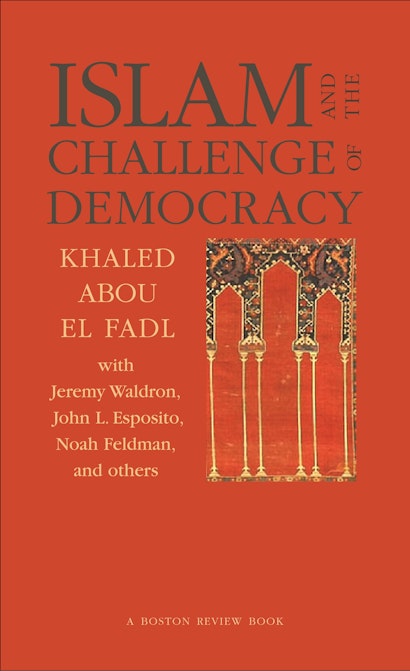The events of September 11 and the subsequent war on terrorism have provoked widespread discussion about the possibility of democracy in the Islamic world. Such topics as the meaning of jihad, the role of clerics as authoritative interpreters, and the place of human rights and toleration in Islam have become subjects of urgent public debate around the world. With few exceptions, however, this debate has proceeded in isolation from the vibrant traditions of argument within Islamic theology, philosophy, and law.
Islam and the Challenge of Democracy aims to correct this deficiency. The book engages the reader in a rich discourse on the challenges of democracy in contemporary Islam. The collection begins with a lead essay by Khaled Abou El Fadl, who argues that democracy, especially a constitutional democracy that protects basic individual rights, is the form of government best suited to promoting a set of social and political values central to Islam. Because Islam is about submission to God and about each individual’s responsibility to serve as His agent on Earth, Abou El Fadl argues, there is no place for the subjugation to human authority demanded by authoritarian regimes. The lead essay is followed by eleven others from internationally respected specialists in democracy and religion. They address, challenge, and engage Abou El Fadl’s work. The contributors include John Esposito, Muhammad Fadel, Noah Feldman, Nader Hashemi, Bernard Haykel, Muqtedar Khan, Saba Mahmood, David Novak, William Quandt, Kevin Reinhart, and Jeremy Waldron.
Khaled Abou El Fadl is Professor of Law at the UCLA School of Law. His recent books include The Place of Tolerance in Islam. Joshua Cohen is the Leon and Anne Goldberg Professor of the Humanities at Massachusetts Institute of Technology and coeditor of the Boston Review. Deborah Chasman is coeditor of the Boston Review.
"What El Fadl achieves in his short book is noteworthy primarily because he brings the concept of democracy home, literally, for the world's Muslims. By giving democracy a technical and legal basis in Islamic law, El Fadl provides it with a certificate of authentication that secular writers . . . cannot."—Bezalel Stern, The Jerusalem Post
"In a just world, Khaled Abou El Fadl would get as much publicity as Osama bin Laden and Abu Musab al-Zarqawi. Bin Laden and Zarqawi blow up buildings and slaughter fellow Muslims. Abou El Fadl blows up everything those two terrorists supposedly believe in."—Carlin Romano, Philadelphia Inquirer
"Dr. Abou El Fadl's essay is lucid, nuanced, and remarkably thorough given its brevity. The responses that accompany it are intellectually challenging, honest, and lively."—Sohail Hashmi, Mount Holyoke College
"Islam and the Challenge of Democracy not only educates readers about the central issues involved in the quest to develop Islamic democracies, it provides its own substantive contributions to that discourse and debate. The voices of Dr. Abou El Fadl and the other contributors are engaging and supremely relevant."—R. Scott Appleby, University of Notre Dame
"For more than a century, Muslim intellectuals have made various attempts to offer a convincing reinterpretation of the Islamic tradition that is faithful both to Islamic religious belief and to the rationality inherent in the present age - the age of democratic modernity. This well-argued book is the latest contribution to this important project. Students and scholars alike will benefit from the fair and balanced treatment accorded to the debate over the compatibility of democratic values and Quranic teachings."—Abdolkarim Soroush, author of Reason, Freedom, and Democracy in Islam.

